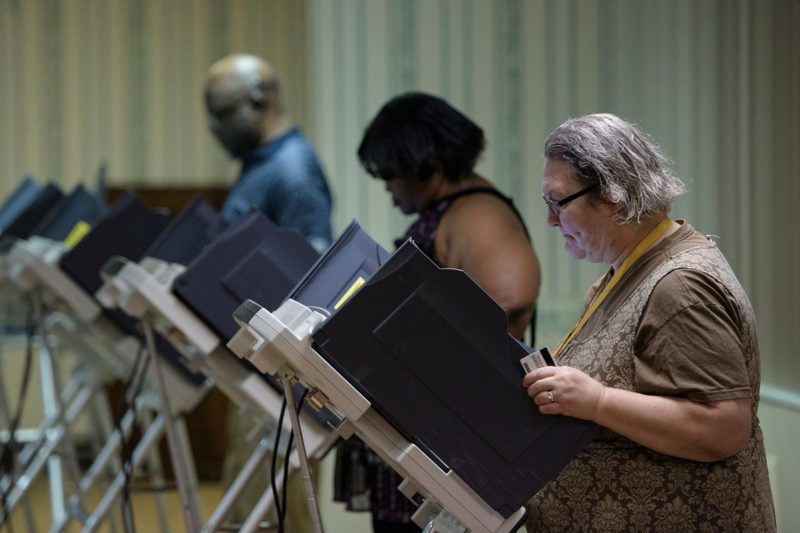Gavel Drop: Supreme Court Takes Another Voting Rights Case
The nation's highest court has signaled it will rule on Ohio's purges of its voter rolls, not too long after it issued an important decision that could influence how race and political party affect gerrymandering cases.

Welcome to Gavel Drop, our roundup of legal news, headlines, and head-shaking moments in the courts.
The U.S. Supreme Court has decided to weigh in on the legality of Ohio’s voter purge just in time for the 2018 midterm elections.
Meanwhile, the high court struck down North Carolina’s gerrymandering law on the grounds that it illegally disenfranchised Black voters. The decision is an important one, but also raises some interesting issues as UC Irvine School of Law Professor Rick Hasen notes here. The Court seems to suggest it can be proper to infer party affiliation from race at times, thus opening the door to partisan gerrymandering claims in addition to racial gerrymandering ones.
Haden explains why voting rights have become such a key issue, and what it means that the Supreme Court declined to hear a case about voting rights in North Carolina, in this NPR interview.
A lawsuit filed against Palatine-Schaumburg High School District 211 in Illinois and the U.S. Departments of Education (DOE) and Justice is challenging the agreement between the district and federal officials to allow a transgender student limited access to bathroom facilities that aligned with her gender identity. That lawsuit will not be dropped simply because the student who inspired the lawsuit graduated last week.
Two suicides inside the New Orleans Justice Center, including that of a 15-year-old last October and a 23-year-old who died this month from injuries after he tried to hang himself, have raised questions for advocates about the jail’s suicide precautions and prompted at least one wrongful death lawsuit.
U.S. District Court Judge William Orrick has ordered David Daleiden and the Center for Medical Progress to appear in court and explain why he should not hold them in contempt. This comes after the anti-choice front organization and leader released last week another smear video targeting Planned Parenthood in apparent violation of a court order barring them from releasing additional video footage obtained at the National Abortion Federation’s private meetings. The hearing is on June 14.
Three Michigan residents who are members of the small Dawoodi Bohra Indian Muslim sect are challenging in court a federal law prohibiting female genital mutilation, citing religious freedom as a defense. They have been charged with subjecting young girls with genital cutting. Nina Shea, a human rights lawyer, told the Catholic News Agency that based on Jehovah’s Witnesses cases denying blood transfusions to children, “the court should decide this type of case on the basis of what’s in the best interest of the child.”
For the first time, a federal judge ruled that being transgender qualifies as a disability under the Americans With Disabilities Act (ADA). Kate Lynn Blatt has become the first trans person to sue an employer for discrimination under the ADA. She was diagnosed with gender dysphoria in 2005 and alleges that her employer not only failed to accommodate her disability but also retaliated against her for seeking accommodation.
